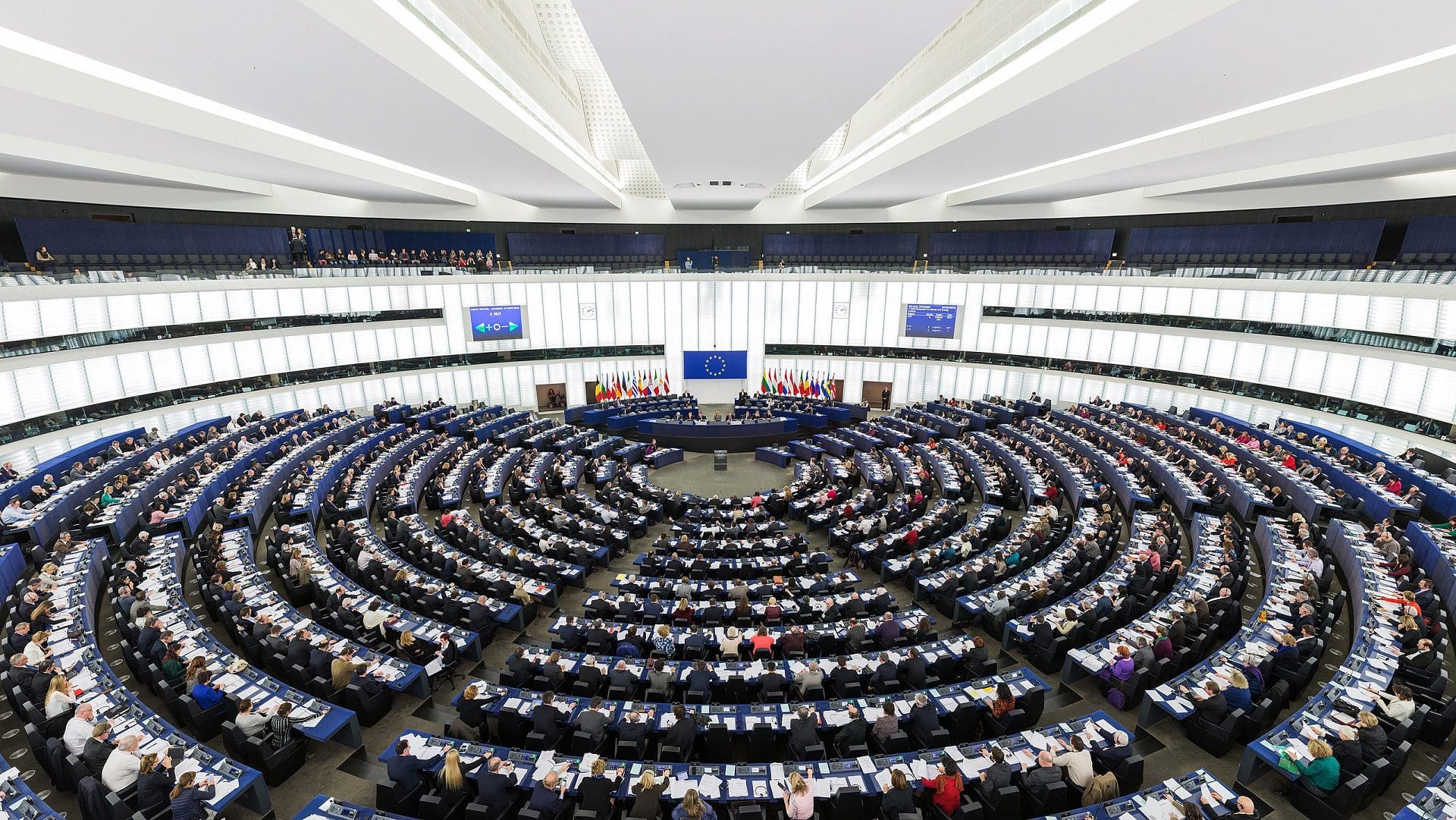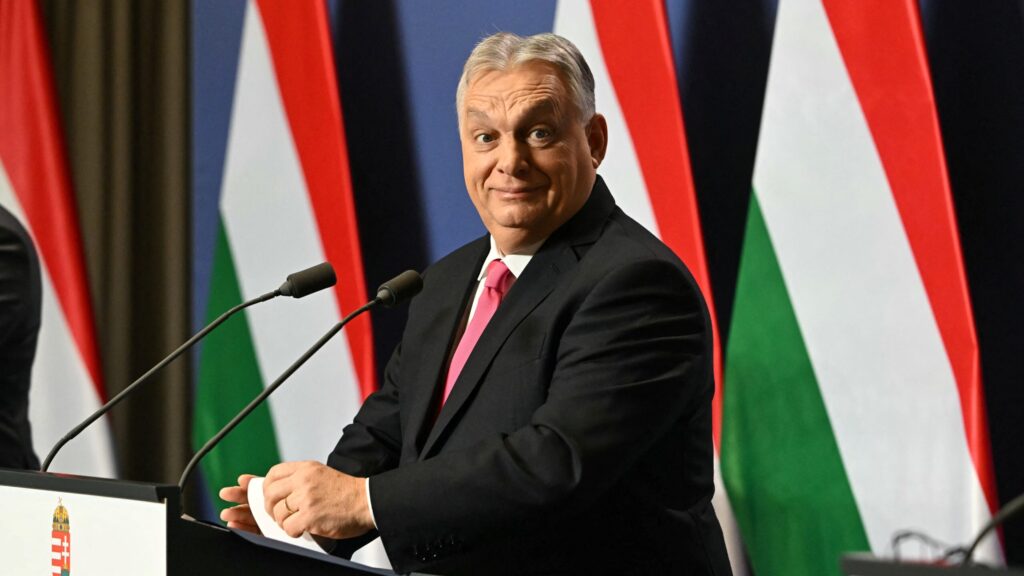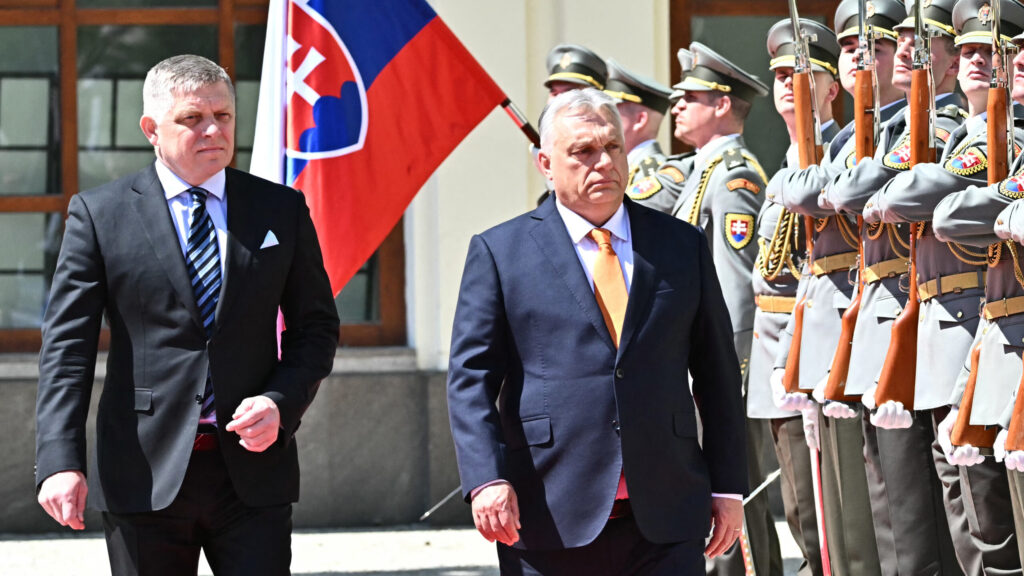The following is a translation of an article written by Ákos Bence Gát, a researcher at the Europe Strategy Institute of the University of Public Service, originally published on Ludovika.hu.
The Hungarian government is not politically responsible to the European Parliament—it is accountable to the Hungarian Parliament alone.
The European Parliament is sending its ‘Committees of Inquiry’ to Hungary one after the other. Last November, a delegation from the EP’s Committee on Culture and Education (CULT) arrived in our country, and in recent days, the media has been all over the visit of members of the EP’s Committee on Budgetary Control (CONT) to Budapest.
Article 228 of the Rules of Procedure of the European Parliament allows the European Parliament committees to conduct so-called fact-finding visits to the Member States, in principle, to investigate matters raised in previous petitions. It should be pointed out that it is an internal regulation procedure of the EP, which cannot impose obligations on the Member States, so national authorities and governments are not obliged to receive these delegations. In March 2023, for example, the Greek government did not receive a delegation from the EP’s Committee on Civil Liberties, Justice and Home Affairs (LIBE), which intended to visit the country just after a mass train accident and, at the same time, during the election campaign period.
Thus, when national administrative bodies, state leaders, or members of the government do receive EP representatives in their country and negotiate with them,
they are making a diplomatic gesture in the spirit of dialogue, since otherwise they are not obliged to do so.
From this point of view, it is particularly interesting to hear that the EP delegation visiting Hungary in recent days ‘lacked’ the meeting with Justice Minister Judit Varga. EP representatives are beneath the ministerial level, so there is no reason why EP delegations should always be received by the respective ministers. They should rather appreciate the occasions when such meetings do take place—as has been the case in Hungary several times in recent years.
It is also worth considering that the EP is not known for making friendly gestures toward the Member States lately. For example, when the Hungarian emergency law aimed at fighting the coronavirus epidemic was fiercely attacked in Brussels, in which the EP played a central role, Judit Varga was not even allowed to represent Hungary in the debate about our country in the EP, despite her expressed request.
It should also be noted that the term ‘fact-finding visit’ is misleading as well because it suggests the committee is seeking objective information, even though this type of visit is clearly a political action. The members of the EP delegations are politicians who are guided by party political interests, and
based on experience, facts can only play a secondary role in their findings,
if they are taken into account at all.
In this regard, it is also worth paying attention to the political communication of the members of these delegations, which is usually revealing in itself. Daniel Freund, the German Green Party member of the last CONT delegation, for example, declared ‘No EU Money’ even before arriving in Hungary, referring to the frozen EU funds due to our country. The cynical selfies he took in the Hungarian Parliament during his official visit also show how Freund is not at all an unbiased observer, as well as the fact that he has been at the forefront of hostile communication towards Hungary for years. On his social media pages, he focuses only on Hungary in several posts on a daily basis—of course, always in a negative and pejorative tone.
Daniel Freund on Twitter: “If Orban does indeed take over the Council Presidency in 2024, the European Parliament will have to think about banning him from the House. We do not negotiate laws with autocrats. / Twitter”
If Orban does indeed take over the Council Presidency in 2024, the European Parliament will have to think about banning him from the House. We do not negotiate laws with autocrats.
The provocative German MEP is obviously carrying out these actions in pursuit of a moment of political fame and a pat on the back from the leftist liberals in Brussels. The phenomenon, however, is still thought-provoking, as it is a grotesque reflection of a rather general trend:
MEPs, with a few honourable exceptions, are increasingly behaving as if their task is to hold the governments of the Member States to account politically.
However, these endeavours raise problems both legally and politically. From a legal aspect, the institutions of the EU can only act in accordance with the provisions of the EU Treaties. Together with the Council, the EP is a co-legislator, that is, it plays a central role in the adoption of EU legislation. In addition, the EP elects the President of the European Commission, but this authority is also limited as it can only vote for the candidate proposed by the Council, which consists of the heads of state and government of the Member States. Article 17 (8) of the Treaty on European Union also states that the Commission is responsible, as a body, to the European Parliament: in case the latter passes a motion of censure, the Commission must resign en bloc. However, even the exercise of this power is subject to special majority requirements: according to Article 234 of the Treaty on the Functioning of the European Union, the motion of censure in the EP must be adopted by a two-thirds majority of the votes cast and by a simple majority of the members of the European Parliament.
As for the relationship between the governments of the Member States and the EP: the Treaties do not state anywhere that the governments are accountable to the EP. Therefore, the continuous efforts of the EP representatives to exert pressure on the governments of the Member States raise serious legal concerns and are practically attempts at illegal external intervention that violate the sovereignty of the Member States.
The governments of the Member States are only responsible to their own national parliaments, which means that
the Hungarian government is accountable to the Hungarian parliament alone.
This is clear not only from a legal aspect, but also from the political-scientific point of view, no matter how hard the EP is trying to take action against the governments of certain Member States. If the government were to start acting according to the expectations of the EP and not the Hungarian parliament, we would face a serious democratic problem: parliamentary elections would be rendered meaningless. The citizens’ right to vote would become superfluous and merely symbolic, as the respective government would actually have no other choice but to follow the guidelines of the EU’s centre of power. This case is, however, not just hypothetical: more and more foreign academics draw attention to the worrying trend that real decision-making in some Western European countries is being outsourced from the hands of democratically elected representatives to other ‘independent’ or international organisations.[1]
This democratically worrisome situation can occur not only if a government voluntarily decides to follow the guidelines of the EP, but also if, as a result of changes in the EU’s power structure, the given government is de facto forced to yield to the demands of the EP or other EU institutions regarding matters otherwise falling within the competence of the Member States. From this aspect, the various EU rule of law mechanisms represent a serious democratic challenge, because due to their structure and based on the experience of their practical application, they are used by the EU institutions as tools to exert previously unprecedented political and financial pressure on the governments of the Member States, serving the interests of party politics or other strata.
We should not turn a blind eye to the EP representatives who seem to be out of line with their role.
Repositioning the power of the EP is actually part of a wider phenomenon that tries to outsource political decision-making from the democratic frameworks of the Member States and thereby reduce the influence of voters on the fate of their own country.
[1] See, for instance, Bertrand Mathieu, A jog a demokrácia ellen?, Századvég kiadó, Budapest, 2018, and Antoine Vauchez, Démocratiser l’Europe. Éditions du Seuil et La République des Idées, Párizs, 2014.
Click here to read the original article.







